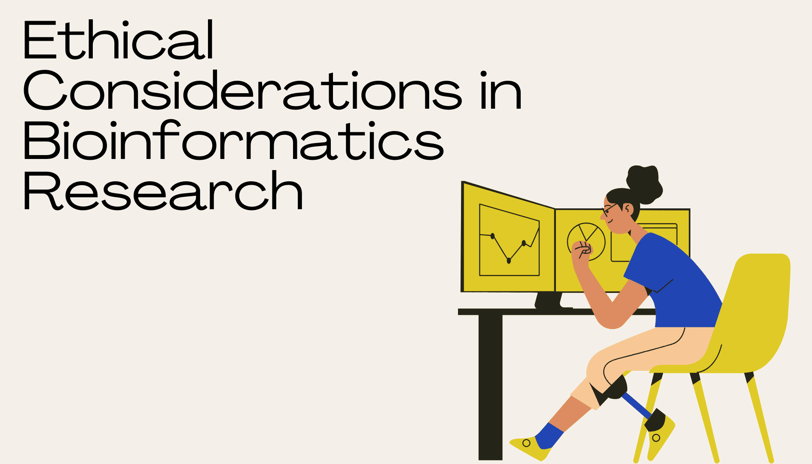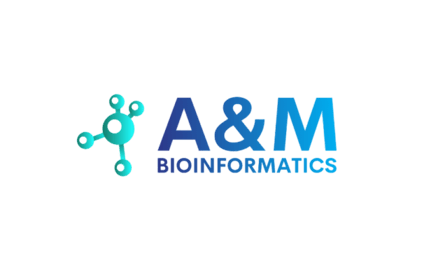Ethical Considerations in Bioinformatics Research
3 min read


Ethical Considerations in Bioinformatics Research
Bioinformatics, an interdisciplinary field at the intersection of biology, computer science, and information technology, has brought about revolutionary changes in how we understand, diagnose, and treat diseases. However, with these advancements come significant ethical considerations. Ensuring that bioinformatics research is conducted ethically is paramount to protecting individual rights, maintaining public trust, and advancing science responsibly. In this blog, we will explore some of the key ethical considerations in bioinformatics research.
Privacy and Confidentiality
One of the foremost ethical concerns in bioinformatics is the privacy and confidentiality of genetic and medical data. The data used in bioinformatics research often includes sensitive information about individuals' genetic makeup, medical history, and health conditions. Unauthorized access or misuse of this data can lead to discrimination, stigmatization, and breaches of privacy.
Researchers must implement stringent data protection measures, such as encryption and secure data storage, to safeguard personal information. Additionally, obtaining informed consent from participants is crucial. Participants should be fully aware of how their data will be used, the potential risks, and their rights to withdraw from the study at any time.
Informed Consent
Informed consent is a cornerstone of ethical research. In bioinformatics, obtaining informed consent can be challenging due to the complexity of the data and its potential future uses. Participants must understand not only the immediate purpose of the research but also how their data might be used in future studies, shared with other researchers, or even reanalyzed with new technologies.
Clear communication and transparency are essential. Consent forms should be written in plain language, and researchers should be available to answer any questions participants may have. Ongoing communication is also important, especially if new uses for the data emerge that were not covered in the original consent.
Data Sharing and Ownership
The collaborative nature of bioinformatics research often involves data sharing among researchers, institutions, and countries. While data sharing can accelerate scientific discovery, it also raises ethical issues related to data ownership and intellectual property.
Researchers must navigate the balance between open science and protecting participants' rights. Data sharing agreements should clearly outline who owns the data, how it can be used, and the responsibilities of all parties involved. Ethical guidelines and frameworks, such as those provided by the Global Alliance for Genomics and Health (GA4GH), can help navigate these complexities.
Equity and Access
The benefits of bioinformatics research should be accessible to all, yet disparities in access to technology, healthcare, and educational resources can exacerbate existing inequalities. For example, populations in low-resource settings may not have the same opportunities to participate in or benefit from bioinformatics research.
Researchers have an ethical obligation to ensure that their work contributes to reducing health disparities rather than widening them. This can include efforts to make bioinformatics tools and resources more accessible, collaborating with researchers in low-resource settings, and ensuring diverse representation in research studies.
Dual Use and Biosecurity
Bioinformatics research has the potential for dual use, meaning that the same technologies that can advance medicine can also be misused for harmful purposes, such as creating bioweapons or conducting genetic discrimination. Ensuring biosecurity and preventing misuse of bioinformatics data and tools is a critical ethical consideration.
Researchers must adhere to guidelines and regulations designed to prevent misuse, such as those outlined in the Biological Weapons Convention (BWC). Additionally, fostering a culture of responsibility and ethical awareness within the bioinformatics community is essential to mitigating risks.
Ethical Use of Artificial Intelligence
Artificial intelligence (AI) and machine learning are increasingly used in bioinformatics to analyze large datasets and make predictions. However, the use of AI raises ethical concerns, such as algorithmic bias, transparency, and accountability. AI systems can inadvertently perpetuate biases present in the training data, leading to unfair or inaccurate outcomes.
Ethical AI practices in bioinformatics involve ensuring diverse and representative training data, regularly auditing algorithms for bias, and maintaining transparency in how AI models make decisions. Researchers should also consider the societal implications of AI applications and engage with ethicists and stakeholders to address potential concerns.
Conclusion
Bioinformatics research holds immense promise for advancing our understanding of biology and improving healthcare outcomes. However, the ethical considerations outlined above are crucial to ensuring that this research is conducted responsibly and with respect for the rights and dignity of individuals. By prioritizing privacy, informed consent, equitable access, biosecurity, and the ethical use of AI, the bioinformatics community can navigate the complex ethical landscape and contribute to a more just and beneficial scientific enterprise.
